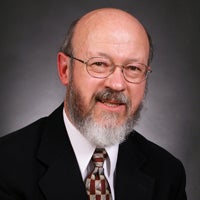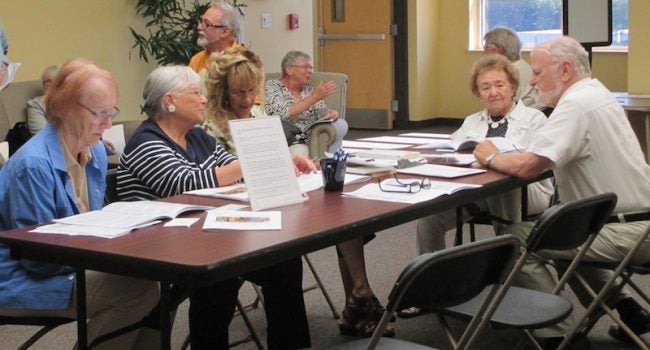One of just 14 in the U.S., URI joins the international Age-Friendly University Global Network
With substantial investments in the Rhode Island Geriatric Education Center, the Osher Lifelong Learning Institute, and intergenerational programs like Cyber-Seniors, the University of Rhode Island has made a concerted effort to be welcoming to people of all ages, including older adults. Those efforts were recently validated when URI was named an Age Friendly University, one of only 14 universities in the country to earn the distinction.
The Academy for Gerontology in Higher Education has invited URI into the Age-Friendly University Global Network, an international group of higher education institutions dedicated to addressing the needs of older adults and focusing on the challenges and opportunities presented by a rapidly aging population. The designation honors URI’s dedication “to an educational movement of social, personal and economic benefit to students of all ages.”
It is an ideal URI has made significant investment pursuing, according to College of Health Sciences Professor Phillip Clark. One such investment is in the Rhode Island Geriatric Education Center he directs, which aims to “prepare health care and human service professionals, faculty, students and caregivers to better meet the physical, functional, and psychosocial needs of older adults.” Clark also directs the Program in Gerontology, a program in the College of Health Sciences that promotes aging-related initiatives across the URI campus.
“We are buying into a commitment to make the University a more hospitable place for older people,” Clark said. “We’re taking on the ageist reputation of higher education, which traditionally has had an emphasis on attracting younger people. Why not recruit older people? My vision is to see more people with gray hair or no hair, like me, on campus.”

URI’s investment in the OLLI program (with a $2 million endowment from the Bernard Osher Foundation) aims to develop a community of lifelong learners, providing diverse courses and activities to adults over 50 years of age without the pressure of exams and grade point averages. The Cyber-Seniors program pairs older adults with URI students who teach them to use the latest technological devices. URI researchers — including Clark, a Fellow of the Gerontological Society of America and the Academy for Gerontology in Higher Education — have received grant funding to study healthy lifestyle habits, exercise and the use of technology to maintain independence among older adults, among other age-related studies.
Going forward, the university can do even more to engage with older adults, including continuing to expand the OLLI program, reaching out to alumni more directly and inviting them to reintegrate into the university community, and possibly hosting forums to explore older adult issues, Clark said. The overall goal is to make URI an even more welcoming place for all learners, which will benefit students and faculty members of all ages.
“It’s a great opportunity for URI to show leadership in the state and the country. We’re thinking big about aging in new ways,” Clark said. “We should do this in a way than enhances this period of life and not see it as a downward spiral. I think of aging on a life course perspective, rather than just old people. Aging is better than the alternative.”
The Age-Friendly University Initiative was launched in 2012 by Professor Brian MacCraith and Enda Kenny at Dublin City University in Ireland. It has expanded to include the United States, United Kingdom and Canada. In becoming an age-friendly university, URI officially endorses 10 principles that provide guidance for evaluating the university’s age-friendly programs and policies and identifying additional opportunities for serving people of all ages:
- To encourage the participation of older adults in all the core activities of the university, including educational and research programs.
- To promote personal and career development in the second half of life and to support those who wish to pursue second careers.
- To recognize the range of educational needs of older adults (from those who were early school-leavers to those who wish to pursue master’s or PhD qualifications).
- To promote intergenerational learning to facilitate the reciprocal sharing of expertise among learners of all ages.
- To widen access to online educational opportunities for older adults to ensure a diversity of routes to participation.
- To ensure that the university’s research agenda is informed by the needs of an aging society and to promote public discourse on how higher education can better respond to the varied interests and needs of older adults.
- To increase the understanding of students of the longevity dividend and the increasing complexity and richness that aging brings to our society.
- To enhance access for older adults to the university’s range of health and wellness programs and its arts and cultural activities.
- To engage actively with the university’s own retired community.
- To ensure regular dialogue with organizations representing the interests of the aging population.

